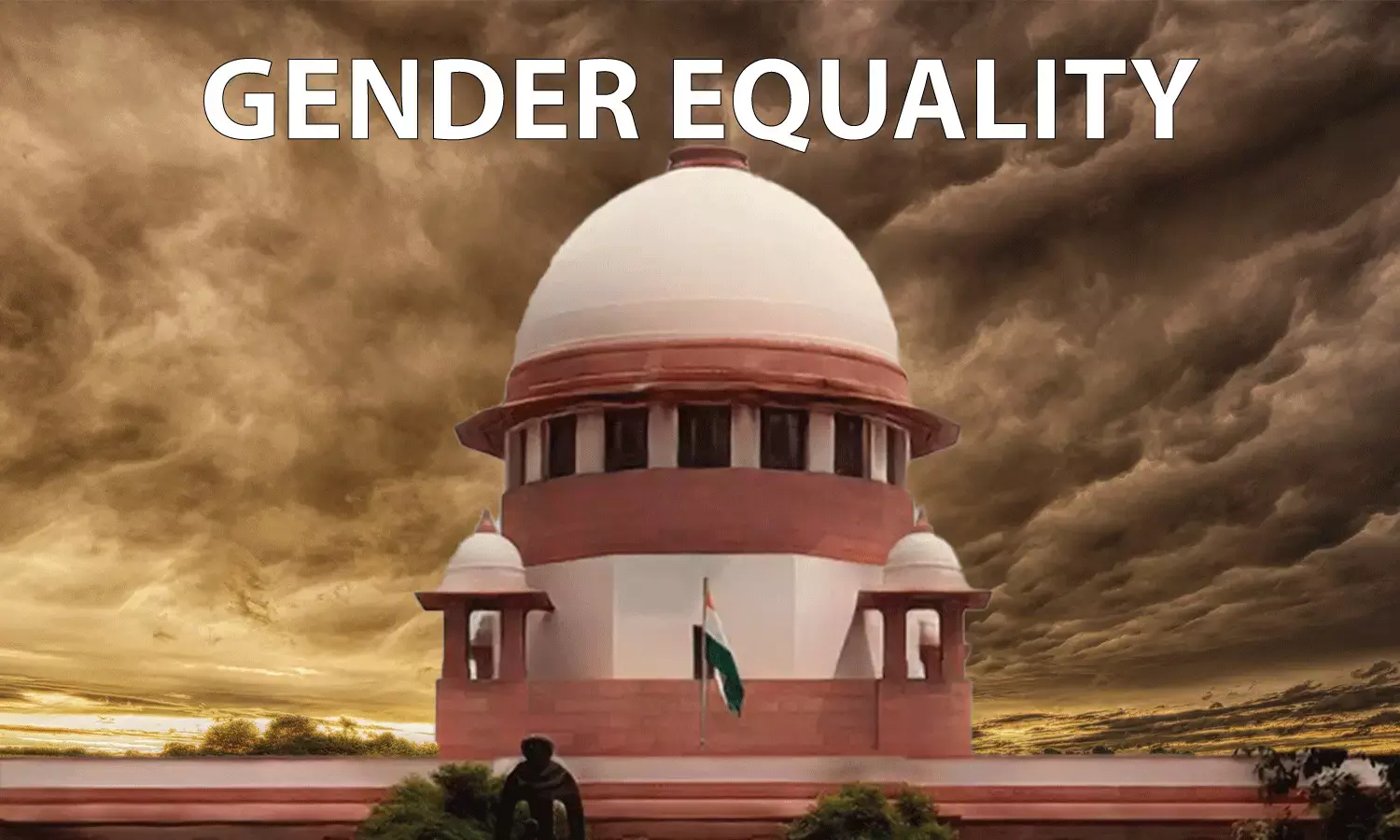Normally Misunderstood & Thought To Be Synonyms: Supreme Court Explains Difference Between ‘Gender Neutrality’ & ‘Gender Equality’
The Supreme Court said that when an employer hires the same number of men and women, it would be deemed to be following the policy of ‘gender-equality’; on the other hand, if the employer hires the best candidate for the job regardless of gender/sex, it would be deemed to be following the policy of ‘gender-neutrality’.

The Supreme Court in its recent Judgment, has explained the difference between ‘gender neutrality’ and ‘gender equality’.
The Court in a Writ Petition, quashed the quota policy for JAG (Judge Advocate General) branch, holding that Indian Army cannot impose an additional restriction regarding extent of induction of women officers in corps.
The two-Judge Bench of Justice Dipankar Datta and Justice Manmohan observed, “This Court is of the view that the expression ‘gender-neutral entry’ in the 2023 policy (which has been accepted and implemented by the Respondents from 2024) is of significant import. ‘Gender-neutral’ in ordinary parlance means that no discrimination shall be made between candidates on the basis of gender or sex of an individual. The expression ‘gender-neutral’ is normally misunderstood and often thought to be synonyms with the expression ‘gender-equality’.”
The Bench added that a simple analogy to address the difference would be that when an employer hires the same number of men and women, it would be deemed to be following the policy of ‘gender-equality’; on the other hand, if the employer hires the best candidate for the job regardless of gender/sex, it would be deemed to be following the policy of ‘gender-neutrality’.
Senior Advocate Gopal Sankaranarayanan appeared for the Petitioners while Additional Solicitor General (ASG) Aishwarya Bhati and Senior Advocate Rana Mukherjee appeared for the Respondents.
Court’s Observations
The Supreme Court after hearing the contentions of the counsel, noted, “Consequently, the concept of gender-neutrality does not just prohibit sex based classification but it ensures that the most meritorious candidate is selected for the job. Also, the principle of ‘gender-neutrality’ in service does not preclude or limit deployment in any operational area or role.”
The Court said that the distinction between the two concepts, namely, ‘gender-neutral’ and ‘gender-equal’ is well known to the Respondents and the Respondents have accepted and implemented the ‘Gender-Neutral Policy’ as against ‘gender-equal’ policy.
“Though the study report recommends a ‘gender-neutral’ entry in JAG branch, yet it paradoxically recommends an intake ratio of 50% (Men) and 50% (Women) for JAG branch with effect from year 2024 till year 2032 or till the time 50:50 cadre ratio is achieved whichever is earlier”, it further remarked.
The Court also noted that the actual practice of recruiting equal number of male and female candidates in JAG branch, though neutral in form, is anything but gender-neutral in application and practice. It held that the professed policy of the Respondents of enrolment/recruitment in JAG branch is ‘gender-neutral’ and not ‘gender specific’.
“The policy, as per the evidence and empirical data before this Court in the form of marks obtained by the candidates, shows that it has adverse impact on women who are more meritorious than the male candidates”, it added.
Furthermore, the Court elucidated that to determine whether the recruitment policy is genuinely gender-neutral or not, one has to look beyond formal level of evaluation and take additional factors such as ‘impact’ or ‘effect’ into account and therefore, ‘genuine’ gender-neutrality lies in addressing disparate effects of laws/policy/practice which appear to be facially fair or equal.
Conclusion
The Court remarked, “This Court clarifies that it is not imposing its own views or predilection on the Army but is implementing the Constitution and the mandate of law. But this Court agrees with the view held by many that ‘no nation can be secure, when half of its population (i.e. its women force) is held back’.”
The Court, therefore, directed the Union of India to henceforth conduct recruitment as well as publish a common merit list for all JAG candidates (i.e. for all male and female candidates) and make the merit list public as well as the marks obtained by all candidates participating in the selection process.
Accordingly, the Apex Court disposed of the Writ Petition and issued necessary directions.
Cause Title- Arshnoor Kaur & Anr. v. The Union of India & Ors. (Neutral Citation: 2025 INSC 954)


